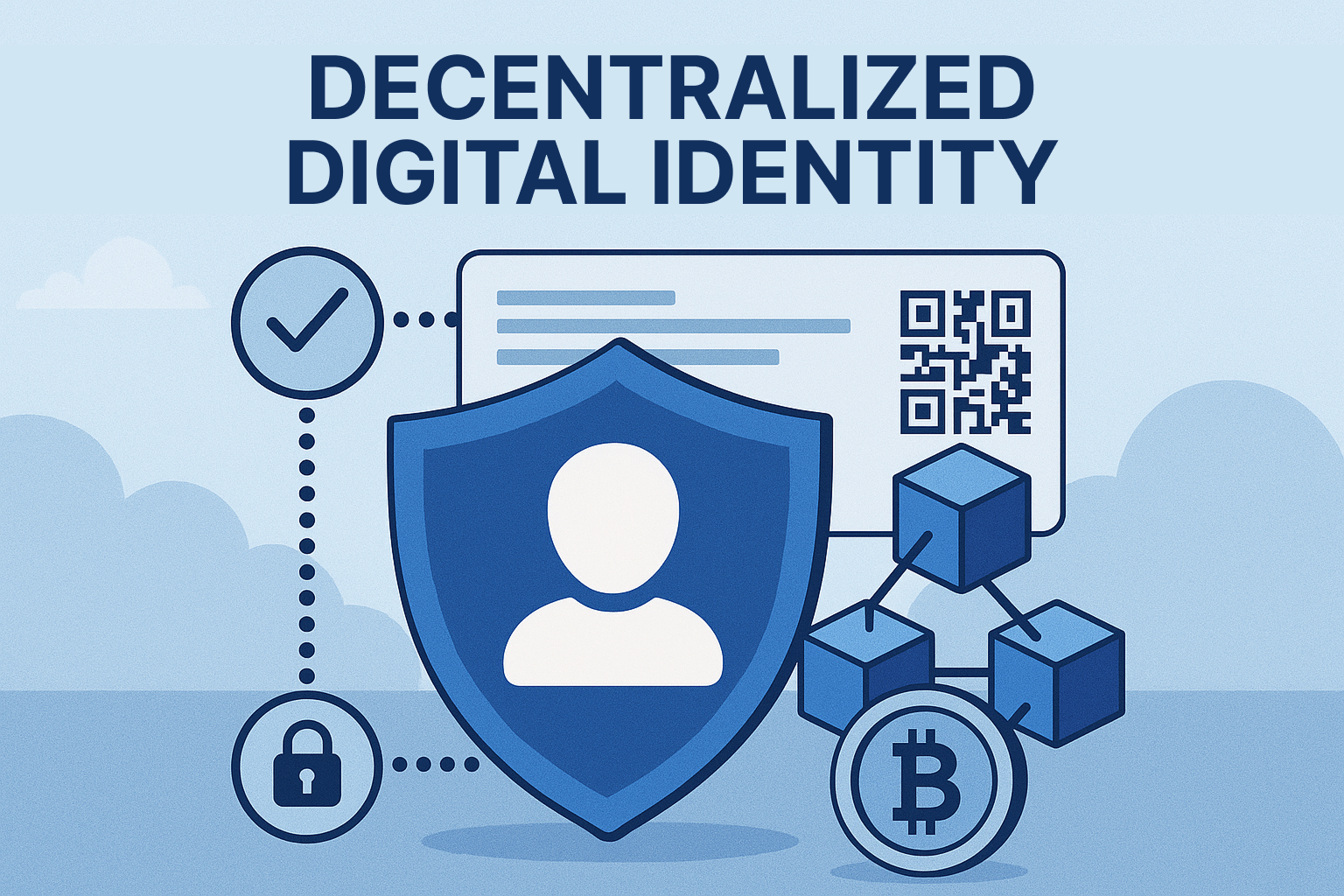As digital interactions continue to grow, the need for secure, private, and user-controlled identity management is more crucial than ever. Traditional identity systems often rely on centralized authorities that store large amounts of sensitive personal data, making them vulnerable to breaches and misuse. Blockchain technology is emerging as a key solution for decentralized digital identity (DID), offering a secure and transparent way for individuals to take control of their own data.
In this article, we will explore how blockchain enables decentralized identity systems and why blockchain-based identity solutions are increasingly seen as the future of digital identity management.
What is Decentralized Digital Identity (DID)?
Decentralized Digital Identity (DID) refers to a system where individuals can create and manage their own digital identities without relying on centralized authorities or intermediaries. DID systems provide a more secure and user-friendly alternative to traditional identity systems by enabling individuals to control their personal information and decide how, when, and with whom they share their data.
Unlike traditional identity models that store personal data in centralized databases, DID systems leverage blockchain technology to provide a decentralized, tamper-proof platform for managing digital identities. This removes the need for a central authority to verify identity claims, reducing the risks of data breaches and identity theft.
How Blockchain Powers Decentralized Identity
Blockchain is the driving force behind decentralized identity systems. Here’s how blockchain provides the foundation for secure, decentralized identity management:
1. Immutable Ledger for Decentralized Identifiers (DIDs)
Blockchain technology allows for the creation of Decentralized Identifiers (DIDs), which are unique, cryptographically secure identifiers that are stored on a blockchain. These DIDs are not tied to any central authority, giving individuals control over their own identity data. Each DID is stored immutably on the blockchain, meaning it cannot be altered or tampered with, ensuring the security and integrity of the user’s identity.
2. Verifiable Credentials for Identity Verification
Blockchain-based Verifiable Credentials (VCs) allow individuals to prove specific claims about themselves (such as age, nationality, or qualifications) without revealing unnecessary personal data. With VCs, third parties can verify the authenticity of the information without needing access to the user’s full identity. This ensures greater privacy while still enabling trusted identity verification.
3. Self-Sovereign Identity (SSI)
Self-sovereign identity (SSI) is a key principle in decentralized identity systems. In an SSI model, individuals fully own and control their digital identity. Blockchain provides the infrastructure to support SSI by enabling individuals to store their own credentials and DIDs, eliminating the need for centralized entities to act as gatekeepers of identity. This reduces the risks associated with centralized storage, such as data breaches and unauthorized access to personal information.
4. Transparency and Security
Blockchain’s decentralized, transparent nature makes it ideal for identity management. Every interaction or transaction involving a DID or VC is recorded on a public ledger, ensuring that the process is auditable, secure, and tamper-proof. This transparency fosters trust between users and organizations, ensuring that digital identities are managed securely and responsibly.
Why Blockchain is Critical for Decentralized Identity
Blockchain provides the following benefits for decentralized digital identity systems:
• Security: Blockchain ensures that identity data is secure, tamper-proof, and protected from unauthorized access.
• Privacy: Users maintain control over their personal data and can selectively share specific information (such as through VCs) without exposing unnecessary details.
• Decentralization: No single entity controls the identity system, reducing the risk of centralized failures or data breaches.
• Trust: Blockchain’s transparent and auditable nature ensures that all identity-related transactions are verified and trustworthy.
Real-World Applications of Blockchain for Decentralized Identity
Blockchain-based identity systems are already being implemented in a variety of industries to improve security, privacy, and user control. Some key applications include:
• Financial Services: Blockchain-based identities allow for secure, privacy-focused KYC (Know Your Customer) processes, enabling financial institutions to verify customer identities without storing sensitive data in centralized systems.
• Healthcare: Decentralized identity systems provide patients with full control over their medical records, allowing them to share health information with providers while maintaining privacy.
• Government Services: Governments are exploring blockchain-powered identity solutions to provide citizens with secure access to public services, voting systems, and social benefits, all while safeguarding their personal data.
How Baliola’s Mandala Application Chain Powers Blockchain-Based Identity
While blockchain technology is at the core of decentralized identity, the successful implementation of these systems requires a robust and scalable blockchain infrastructure. This is where Baliola plays a crucial role. Baliola, as a key technical partner, developed IDCHAIN for PANDI (Pengelola Nama Domain Internet Indonesia) using its Mandala Application Chain as the foundation.
The Mandala Application Chain provides:
• Secure and scalable infrastructure for decentralized identity management, supporting the creation of DIDs and VCs.
• Customizable solutions that allow organizations to build their own decentralized identity systems, tailored to their specific needs.
• Interoperability with existing systems and standards like W3C’s Verifiable Credentials and Decentralized Identifiers, ensuring that decentralized identity solutions are compatible with global standards.
While IDCHAIN is owned by PANDI, it is powered by Baliola’s Mandala Application Chain, making it a cutting-edge solution for decentralized digital identity in Indonesia.
Ready to Explore Blockchain-Based Identity Solutions?
If your organization is looking to implement secure, scalable blockchain-based identity systems, Baliola can help. With our Mandala Application Chain, we provide the infrastructure needed to power decentralized identity systems like IDCHAIN, helping you deliver secure and privacy-focused digital identity solutions. Contact Baliola today to learn more about how we can support your decentralized identity initiatives.
